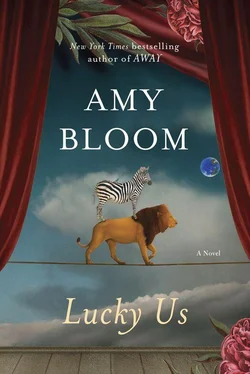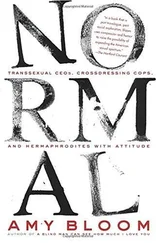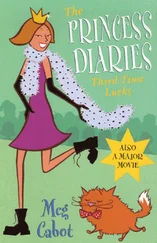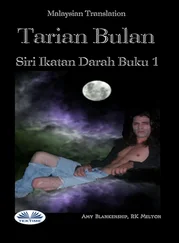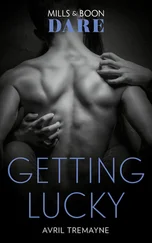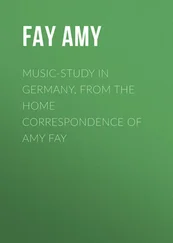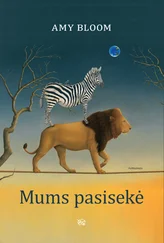We walked a couple of miles over torn-up track, with four suitcases, the gold dollars sewn into my shorts, and two cold and weepy girls. We got to a boardinghouse. Greta made herself understood and she got on the phone to her aunt and uncle.
Here’s what her uncle said: Why are you here?
How long are you staying?
What will you eat?
I wasn’t even offended. Who in the name of Christ would leave America to come to Germany?
Karl Hauser, formerly your Gus
MY FATHER’S ILLNESS BECAME A LONG, BUMPY, TERRIBLE ROAD TO a place we didn’t want to go, except that the road itself was so awful, we couldn’t wait to get there. Clara told me that she’d missed her mother’s death and had only heard about her brother’s, and that these long days must be Someone’s way of making up for that.
Sometimes my father thought Clara was his third daughter. The three of us were having dinner around his bed one night, balancing our plates on our knees, and he said, I don’t know what I would do without my girls. I am the happy version of King Lear, a lucky man with three lovely daughters. Iris and I looked at each other and Clara waited until my father fell back asleep and said, You think it’s nice for me? Being the third daughter, and the dusky one, the one who gets to brush his teeth and wash his wienie? I don’t remember that scene from King Lear.
Iris had other fish to fry. She got bigger parts on Broadway, and came home at two in the morning, running up the stairs to Reenie. Iris and Reenie both felt there was no reason for Danny to spend time in a sickroom with a man he’d hardly known before, who didn’t know him now. In the daytime, Reenie cooked, and in the evenings, she watched Danny, leaving a lot of days to me and Clara, talking our way through the washing and the drying and the slow misery of feeding my father.
Clara said, “The first time I saw your father, I was walking out of the Silver Star Diner.”
I said I loved their French toast.
“He raised his hat to me, like I was white,” she said. “I liked that. I haven’t always been in the company of gentlemen.”
I nodded.
“Your father doesn’t mind appearing foolish. That’s a good thing.”
I never saw my father as foolish. When I was a little girl, I saw him as a god, generous with the Hershey bars, and now I saw him as clever and shallow. Thin silver plate over nickel, is what I thought, and the thought must have showed on my face.
“You think this was nothing for him? You think your father lived in his own nice house, with an Irish maid and his own pretty family and taught English poetry three days a week and now he is a symbol of Joe Torelli’s success, Joe Torelli’s Rochester? You think this is what your father was hoping for? To open the front door for Joe Torelli and leave around the back?”
She put her hands in front of her, like she was praying for the strength not to hit me in the face.
My father opened his good eye and looked at Clara. He pressed his left hand over his heart, which was what he did now when he had strong feelings he couldn’t express.
“Here now,” Clara said. “It’s okay. It’s just me. It’s just Clara. And Eva.”
He put his left hand on hers. “I’ve forgotten some things.”
“It doesn’t matter,” Clara said and she lay down next to him. She put her head on his chest and pulled his hand down to her shoulder. I picked up the leftovers from breakfast.
“My dear,” he said to her. “My love.”
Then he said, “Mamele.” And Clara lifted her head.
“Oh, boy,” she said to me.
“Darling girl,” he said. “I know you.”
“I know you too,” she said, still looking at me.
“No. I know you. Your brother took you everywhere. I never saw a guy so crazy about his little sister. Smoke Williams. I know you.”
My father turned his head and fell into one of his quick, restless sleeps.
He didn’t make much sense anymore. He talked about the green river Wye and the stately homes of England and sometimes about me and Iris, when we were very little girls together, which never was. Sometimes he would get very sentimental about my mother, which I found unbearable, but I didn’t know how to tell my dying father to please shut up.
Clara said, “I did have a brother called Smoke. His name was Henry. I loved him. I’d go on his rounds with him, delivering liquor to different clubs. Everywhere we went, he made sure someone gave me a glass of milk, or a cookie or a little sandwich. I don’t remember your being there.”
“We played pool,” my father said, with his eyes closed. “The Green Mill. Smoke ran the table. Who could forget?”
Clara said to me, “Honey, I have to get ready for tonight. Can I leave him with you?”
My father persisted. “No? Nu? Izzy Vogel, the Jewish boy at Chez Paree? You don’t remember me? See the ears, see the big blue eyes? What happened to your brother?”
“He died in the riots,” Clara said. “I’ll take that stuff down,” she said, and left the room.
“Yisgadal yis …” my father said, raising his hands to the sky.

ALMOST EVERYTHING HE SAID after that was in another language. Clara said it was Yiddish. He sang to us in Yiddish. He sat up in the bed, frowning, and said, “ Ich voyn bei Grand Avenue, Chicago.”
One afternoon, my father put his hands on Clara’s shoulder and stood up. He gestured for his slippers, and I couldn’t get his swollen feet into them. He shrugged. He took Clara’s hand for a few steps and, barefoot, led her onto a dance floor, somewhere.
“Oh, the turkey trot,” Clara said, over his shoulder. “Years ago. My aunt and uncle used to do all these crazy dances. Turkey trot. The camel. The grizzly bear.”
My father danced another few steps and stood still, in the middle of the room.
“Oh, I wish I could shimmy like my sister Kate,” he said and fell, bone by bone, to the floor.
THE DOCTOR CAME TO the house in April, when the tulips and forsythia were everywhere. Where there weren’t enough flowers, the Torellis nestled small pink and white plastic chicks. They placed a pair of three-foot-tall porcelain bunnies and bouquets of giant pink and yellow ribbons at both ends of the driveway, and the doctor drove over the ribbons. Every time someone rang the bell at the carriage house, Clara would sit down in whatever room she was in and say, Doorbell.
“I’m not the maid,” she said.
Clara and I had both read the article in the Great Neck magazine, written by an anonymous maid, complaining about no privacy, shitty leftovers, and notable stinginess in vacation and salary. Clara told me that one evening at the Nite Cap, a regular customer, a big woman from Alabama, read the entire article aloud from the stage.
“She says, ‘And I say to you, ladies and gentlemen, next white woman ask me do I mind watching the kids for them on Thursday night is gonna get “I sho’nuff do and here’s my foot on your fat white ass.” ’ And you know who bought her a drink?” Clara said. “That nice Ozzie Patterson. Patterson’s Cleaning Company. Patterson’s Livery. And you know what else he did? He bought me a Manhattan. He bought me two and he drove me home. In his Oldsmobile.”
“That was nice,” I said, as if Ozzie Patterson, with his two businesses and his famously kind disposition and his obvious good health, were of no concern to me.
THE TORELLIS SENT A priest to sit with my father. It was a very Torelli thing to do: kind, well intentioned, a little tone-deaf. Not a single person in our extended family was religious, except Danny, who did actually pray on his knees every night, asking for miracles (bicycle, train set, hang glider). Danny was devoted to Saint Joseph of Cupertino, the patron saint of aviators, which he must have picked up from Reenie. When the Torellis told Reenie that Father Dom was coming over, Reenie walked out of the kitchen and into the garden to cool off. She came back in and told Danny to go play outside. She walked over to the carriage house and started setting the table, in the middle of the day.
Читать дальше
